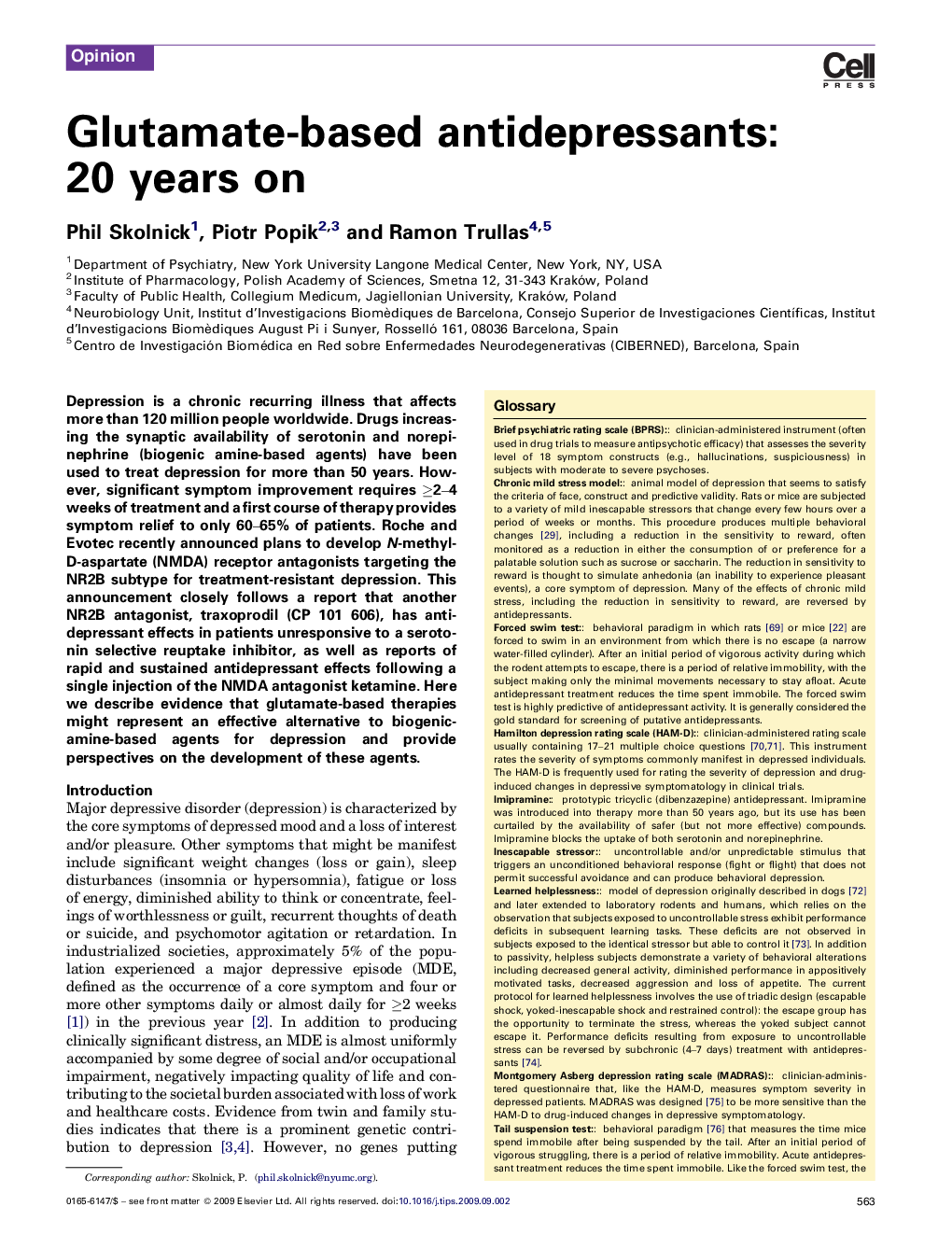| Article ID | Journal | Published Year | Pages | File Type |
|---|---|---|---|---|
| 2573199 | Trends in Pharmacological Sciences | 2009 | 7 Pages |
Depression is a chronic recurring illness that affects more than 120 million people worldwide. Drugs increasing the synaptic availability of serotonin and norepinephrine (biogenic amine-based agents) have been used to treat depression for more than 50 years. However, significant symptom improvement requires ≥2–4 weeks of treatment and a first course of therapy provides symptom relief to only 60–65% of patients. Roche and Evotec recently announced plans to develop N-methyl-D-aspartate (NMDA) receptor antagonists targeting the NR2B subtype for treatment-resistant depression. This announcement closely follows a report that another NR2B antagonist, traxoprodil (CP 101 606), has antidepressant effects in patients unresponsive to a serotonin selective reuptake inhibitor, as well as reports of rapid and sustained antidepressant effects following a single injection of the NMDA antagonist ketamine. Here we describe evidence that glutamate-based therapies might represent an effective alternative to biogenic-amine-based agents for depression and provide perspectives on the development of these agents.
